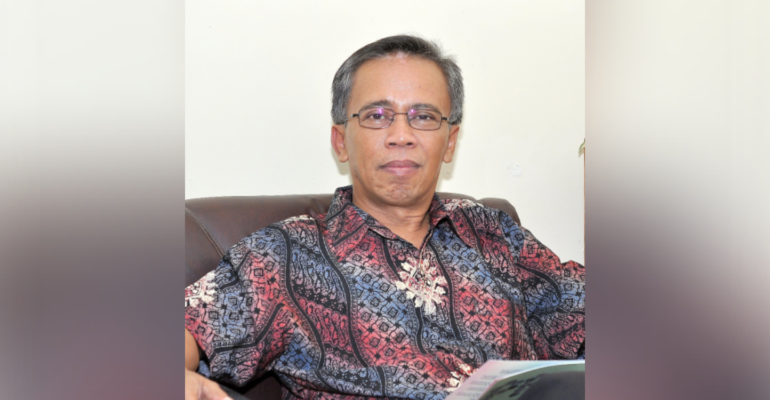IPB University Environmental Expert Clarifies How to Evaluate Environmental Losses Due to Pollution

The rise of news about state losses caused by illegal mining, which amount to hundreds of trillions of rupiah, raises a number of questions among the public, how to estimate such state losses? Is it in the form of misappropriated cash funds?
For this reason, RRI Bogor had the opportunity to interview Prof Hefni Effendi, an environmental expert at IPB University who is also experienced in conducting environmental studies due to pollution and formulating mitigation efforts.
Straightforwardly and briefly, Prof Hefni, who is also the Chairman of the Department of Aquatic Resource Management (MSP), Faculty of Fisheries and Marine Science (FPIK) IPB University, and the Advisory Board of the Environmental Research Center (PPLH) IPB University, responded to this matter.
Prof Hefni explained that large losses totaling hundreds of trillions can occur if mining is carried out with open pit mining techniques, which can leave massive environmental impacts if not managed carefully after mining.
“The calculation of losses due to environmental pollution is determined by applying economic valuation of resources and the environment. Environmental services are a component that must also be assessed for losses,” Prof Hefni explained in an interview broadcast by RRI Bogor live recently.
“The component of environmental services consisting of procurement, regulation, culture and support is of very high value. Especially if mining is carried out in forest areas or coastal and marine areas that have sensitive ecosystems such as: mangrove forests, coral reefs, seagrass and fishing grounds,” he said.
Prof Hefni continued, the impact on the environment can be categorized as state losses, because if an environmental catastrophe occurs due to pollution, the state must be present to overcome and mitigate these problems and there are a number of funds that must be spent to restore the lives of people who are disturbed and restore damaged environmental conditions.
“If a catastrophe occurs due to carelessness and indifference to environmental management, it will take a long time to recover. On the other hand, when mining is carried out carefully and with a license, then recovery efforts should be carried out simultaneously with exploitation activities, so that not long after mining, it is hoped that the environment can also be restored,” he said.
He explained that both legal and illegal mining activities are closely related to the community’s economy. Legal mining is usually carried out by corporations, while illegal mining is usually carried out by a group of people who do not have official institutions.
“Therefore, handling unlicensed miners must be done with a persuasive and humanist approach, so that economic problems and environmental problems as well as legal aspects of mining can be found a wise meeting point,” concluded Prof Hefni. (IAAS/NAU)



